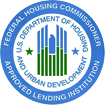Homeowners generally stop paying their mortgage for many reasons. Financial circumstances change, people lose their jobs and relocate, housing values drop, and many other reasons. These are some of the factors that make homeowners owe far more money than their property is worth.

What Happens If You Skip Mortgage Payments?
Whatever the reason, skipping monthly payments is a choice people don’t make lightly. Foreclosure can impose serious damage on their credit. It will also make getting another home loan impossible in the short-term. Skipping one or two mortgage payments doesn’t mean foreclosure is on the way, but skipping payments can have lasting effects on your credit and finances.
Modern Foreclosure Procedures
Misleading practices and mismanagement of borrowers are a few of the problems that the housing crisis is facing. New foreclosure avoidance procedures are enabling mortgage service providers to send written notices to homeowners before they become delinquent. That notice will cover foreclosure avoidance options, like a loan modification or a short sale. The provider will include delinquent payments and penalties to the loan balance and prepare a new payment plan. A short sale is when the provider lets the homeowner sell the home for less than they owe. You may also be able to surrender your property if you have a permanent problem that will prevent you from making any more payments.
Types of Foreclosures
Judicial and non-judicial are the two basic types of foreclosures and what you face will be relied partially on where you stay. The judicial foreclosure needs formal court proceedings, which means it will be a long process. In a non-judicial method, the provider can start a foreclosure sale without a judge’s approval. The lag time gives homeowners a lot of time to assess their options. Remember, service providers cannot formally file for foreclosure until you’re more than a limited number of days delinquent on your mortgage payment. They also cannot start the process if you’ve applied for help.
Keeping Foreclosure at Bay
Homeowners who want to hold their property should work with their service provider toward an acceptable mitigation plan. The homeowners who cannot or do not want to continue making payments can go for a short sale, which involves them to deed the property back to the provider. Choosing bankruptcy protection can also enable homeowners to temporarily stop the foreclosure process. Approaching financial professionals and attorneys can be helpful, as they could provide good suggestions on how best to proceed in your specific condition. If you still continue skipping payments or fail to finalize or fail to keep a promise on your mitigation plan, the service provider will force you to choose foreclosure.
Negative Impact on Your Credit
Foreclosure or a short sale or deed-in-lieu of foreclosure will negatively impact your credit profile. How much of an impact it has will depend partially on what kind of credit you had at the time of the foreclosure. Homeowners who encounter a foreclosure may need to wait at least two years to buy another home.
Mortgage lenders Boston can help you through tough times. Mortgage companies in MA don’t want you to go into foreclosure; they can help you keep your home, so it’s vital to have dialogue with them when you feel you may have to skip payments.
Drew Mortgage Associates offers mortgage services in Boston, Massachusetts. Drew Mortgage Associates can help you with the best solution to your situation. Additionally, if you want to renovate your home, Drew Mortgage Associates can provide a Rehab Loan at a low-interest rate and they can help you throughout the mortgage loan process.



